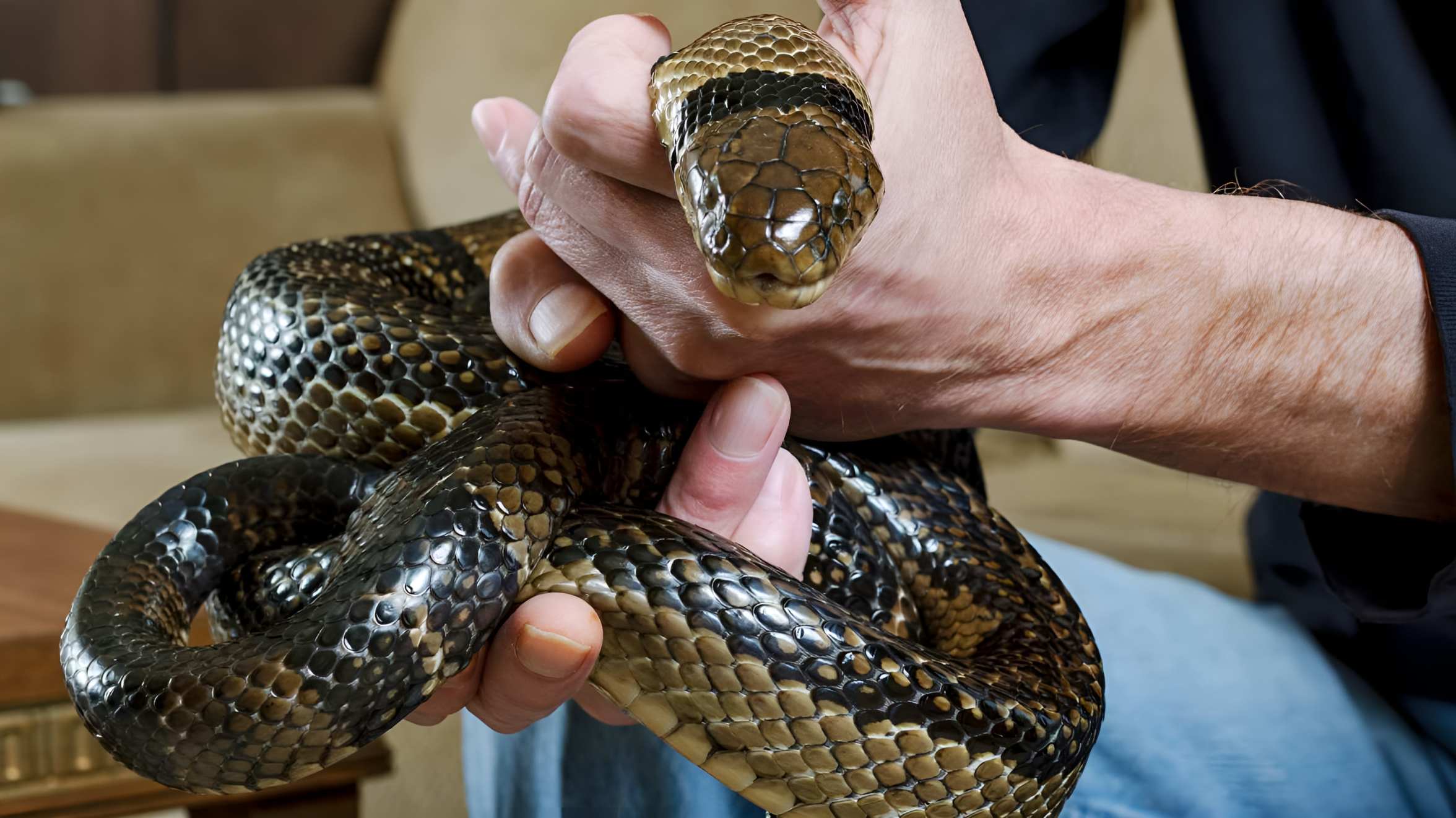A man in the United States who has spent nearly twenty years injecting himself with venom from deadly snakes is now at the center of what researchers are calling a groundbreaking step in antivenom development.
His blood, rich in rare antibodies, has helped scientists create an experimental treatment that shows promise in neutralizing venom from a wide range of snake species.
As reported by the BBC, Tim Friede has gone through more than 200 snake bites and injected himself with venom over 700 times, using some of the most dangerous snakes in the world, such as mambas, cobras, taipans, and kraits.
What began as an attempt to build personal immunity while working with snakes has turned into a mission to help people in parts of the world where snakebites are often deadly.
“I didn’t want to die. I didn’t want to lose a finger. I didn’t want to miss work,” he said in an interview.
His motivation soon shifted toward developing better treatments, especially for those living in remote areas.
"It just became a lifestyle and I just kept pushing and pushing and pushing as hard as I could push - for the people who are 8,000 miles away from me who die from snakebite," he said.
Traditional antivenoms are created by injecting small amounts of venom into animals like horses.
These animals produce antibodies, which are then used to treat bites.
However, these treatments are limited by the need to match the antivenom to the specific type of snake, and venom can vary not just between species but even within the same species from different regions.
This is what makes the recent findings so important.
A research team began searching for what are known as broadly neutralising antibodies, ones that can attack common features across many types of venom.
That’s when Dr Jacob Glanville, the head of a biotech company called Centivax, discovered Friede.
"Immediately I was like ‘if anybody in the world has developed these broadly neutralising antibodies, it’s going to be him’ and so I reached out," Dr Glanville said.
"The first call, I was like ‘this might be awkward, but I’d love to get my hands on some of your blood".
Friede agreed to help, and the study went forward after receiving ethical approval since it involved only blood samples and not further venom injections.
The study focused on elapids, one of the two main families of venomous snakes, which includes cobras, mambas, kraits, coral snakes, and taipans.
These snakes mainly use neurotoxins, which can paralyze and eventually stop the muscles needed to breathe.
Using blood samples from Friede, the researchers looked at antibodies that might defend against these toxins.
They focused on 19 elapid species listed by the World Health Organization as among the most dangerous.
From this, they identified two antibodies that could work against two classes of neurotoxins.
A third drug was added to the mix to expand the protection.
In tests done on mice, the treatment helped protect against deadly doses from 13 of the 19 snake species and gave some protection against the other six.
Dr Glanville called it an “unparalleled” level of defense and said it "likely covers a whole bunch of elapids for which there is no current antivenom."
Researchers are now working to improve the formula, hoping that with one more ingredient, they can achieve full protection against elapid venom.
The other main group of venomous snakes, vipers, rely more on toxins that affect the blood.
There are about a dozen broad toxin types found in snake venom, including ones that destroy tissue directly.
"I think in the next 10 or 15 years we’ll have something effective against each one of those toxin classes," said Prof Peter Kwong from Columbia University, one of the scientists involved in the study.
Friede’s blood continues to be a focus for researchers.
"Tim’s antibodies are really quite extraordinary – he taught his immune system to get this very, very broad recognition," said Prof Kwong.
Scientists hope to one day have a universal antivenom that can treat all bites, or at least separate treatments for elapids and vipers.
Prof Nick Casewell, head of snakebite research at the Liverpool School of Tropical Medicine, called the work "certainly novel" and said it showed that this approach could be promising.
"There is no doubt that this work moves the field forwards in an exciting direction," he said, though he also noted that more research and testing are needed before the treatment can be used on people.
For Friede, helping the research reach this stage is deeply personal.
"I’m doing something good for humanity, and that was very important to me. I’m proud of it. It’s pretty cool."

